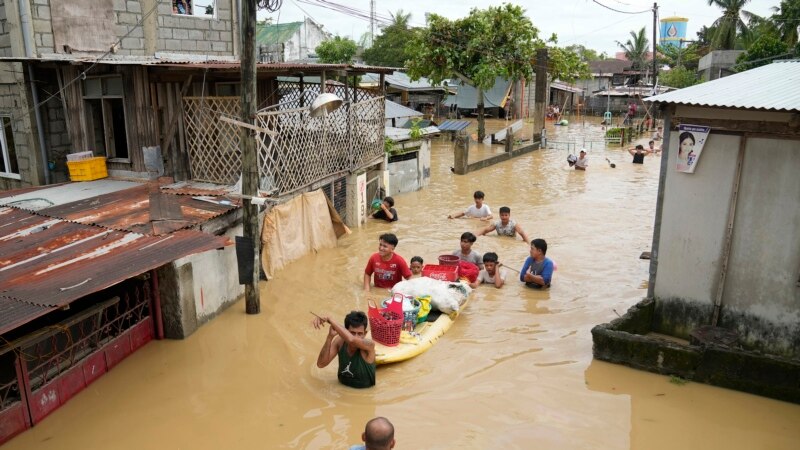
Signs of War Are Everywhere in Ukraine
No matter where Ukrainians live, the 3-month-old war never seems to be far away.
Those in towns and villages near the front lines hide in basements from constant shelling. They are struggling to survive with no electricity or gas, and often no running water.
But even in areas out of the range of big guns, frequent air raid alarms sound. They are a reminder that a Russian missile can strike at any time—even for people living in cities like Kyiv, Odesa and Lviv.
“City residents are trying to return to regular life, but with every step, they stumble upon either a crater or a ruined house or a grave,” said Andriy Pustovoi. He spoke by phone to The Associated Press from the northern city of Chernihiv.
Chernihiv was in the way of Russian forces as they moved toward Kyiv early in the war. It was heavily attacked. Mayor Vladyslav Atroshenko said about half of its buildings were damaged or destroyed. At least 700 residents were killed, and part of a city park now holds a cemetery , where some of them are buried.
Its streets are mostly empty now, half of the shops have not reopened, and public transportation is not working at times, said Pustovoi.
Few people are seen on the streets of Kramatorsk, as well.
The eastern city has been hit several times. The worst attack came on April 8, when a missile struck near its train station where about 4,000 people had gathered to be evacuated . A total of 57 people were killed, and over 100 wounded.
Kramatorsk is one of the largest cities in the industrial Donbas that Russian forces have not taken over. The Donbas has seen battles between Russian-backed separatists and Ukrainian government forces since 2014.
Elsewhere in the Donbas, the situation is even worse.
Ryisa Rybalko fled the village of Novomykhailivka. She lived there first in a basement and then in a bomb shelter at a school.
“We haven’t been able to see the sun for three months. We are almost blind because we were in darkness for three months,” she said.
After Russian forces failed to capture Kyiv in the opening weeks of the war, they withdrew to the east. Residents have started to reenter the capital. The nightly curfew has been reduced by an hour, and public transportation started running longer. They face long lines at gas stations. And the economy is greatly weakened.
But the National Opera started performances again last week in Kyiv. And some restaurants, cafes and shops in cities like Odesa and Zaporizhzhia have reopened.
Lviv, a city in western Ukraine, has received more than 300,000 people fleeing other conflict areas. About 1,000 arrive at its train station daily.
Hotels, campgrounds, universities and schools ran out of space for them long ago. The city has built temporary housing that looks like shipping containers in city parks.
In cities and towns of southern Ukraine, the war continues regularly.
In the village of Velyka Kostromka, the remaining residents try to go on with life despite the occasional attacks.
At least 20 houses were damaged on a recent morning, including three that were destroyed. A woman and her three children barely survived.
Hours later, a farmer was back in his potato field, looking at a small crater left behind. He quickly moved to rake over it.
I’m Dan Novak.
Elena Becatoros and Yurus Karmanau reported this story for The Associated Press. Dan Novak adapted it for VOA Learning English.
Words in This Story
resident — n. someone who lives in a particular place
stumble — v . to hit your foot on something when you are walking or running so that you fall or almost fall
crater — n. a large round hole in the ground made by the explosion of a bomb or by something falling from the sky
cemetery — n. a place where dead people are buried
evacuate — v. to leave a dangerous place
curfew — n. an order or law that requires people to be indoors after a certain time at night
rake — v. to use a rake to gather leaves, break apart soil, make ground smooth, etc.
Share this article:
This article uses material from the VOA Learning English article, and is in public domain. Images and videos are available under their respective licenses.


